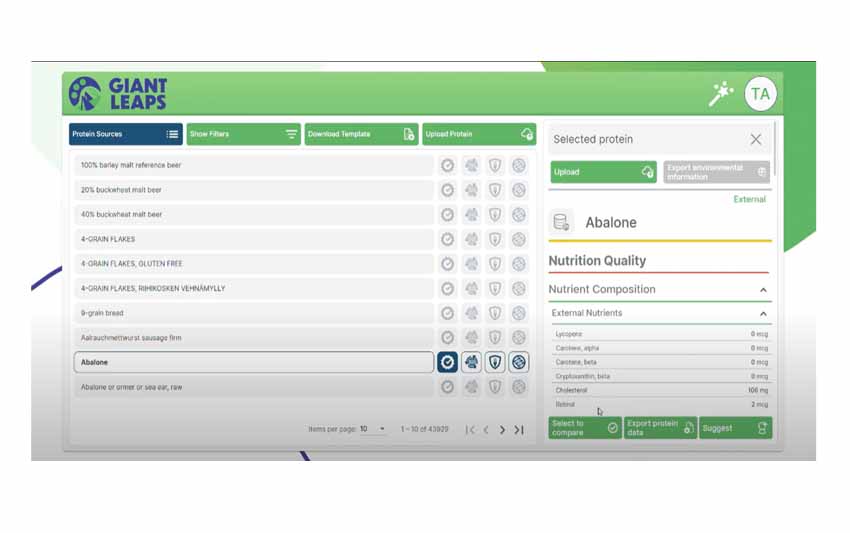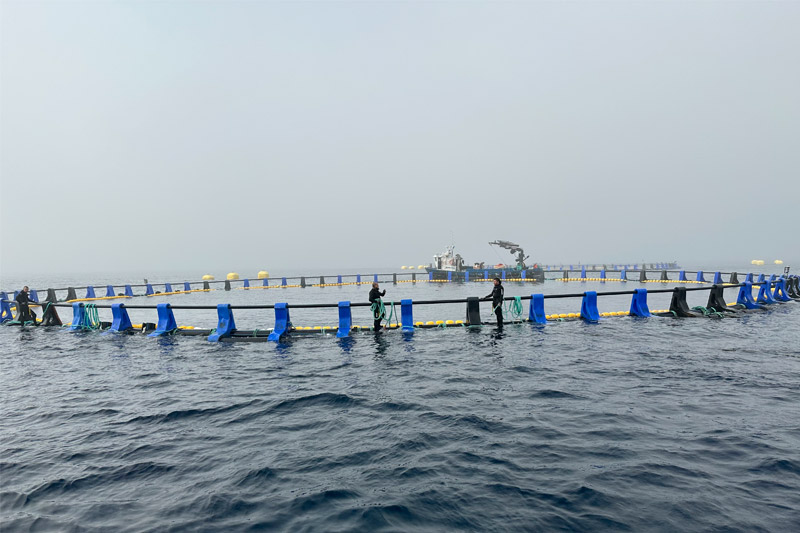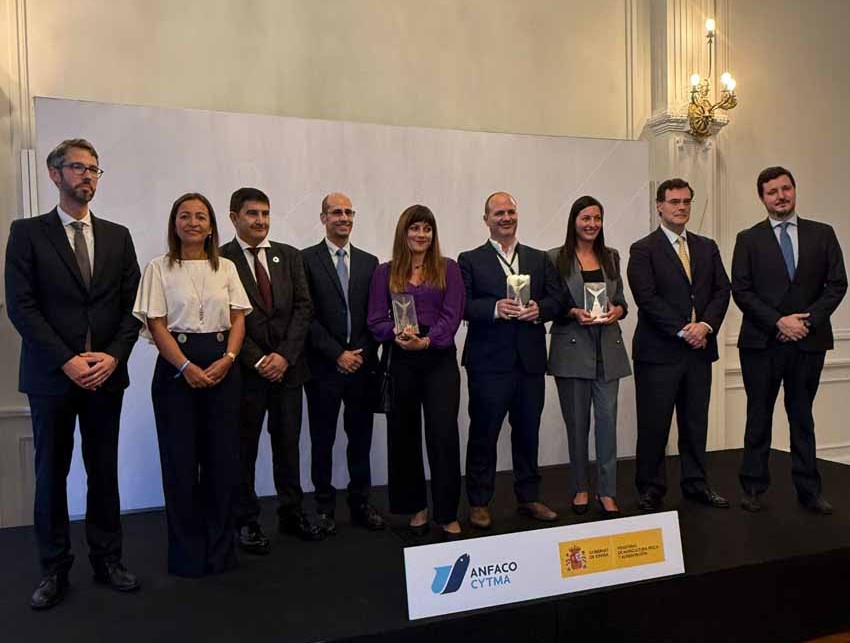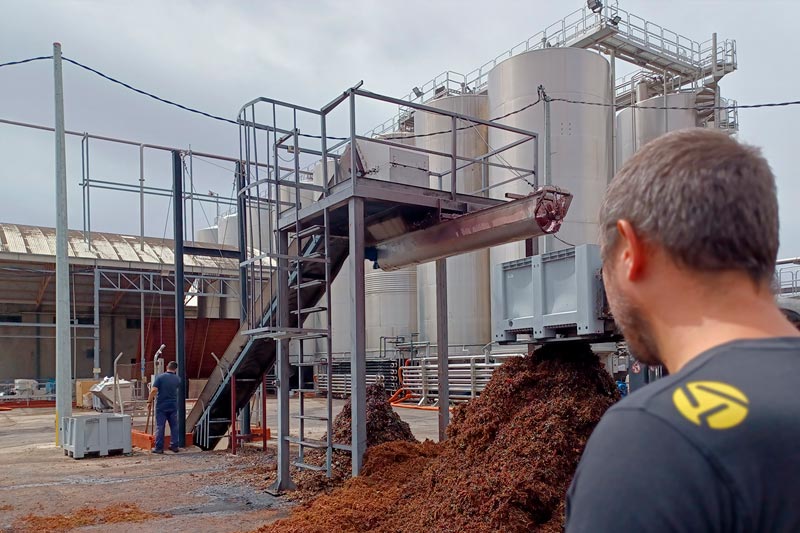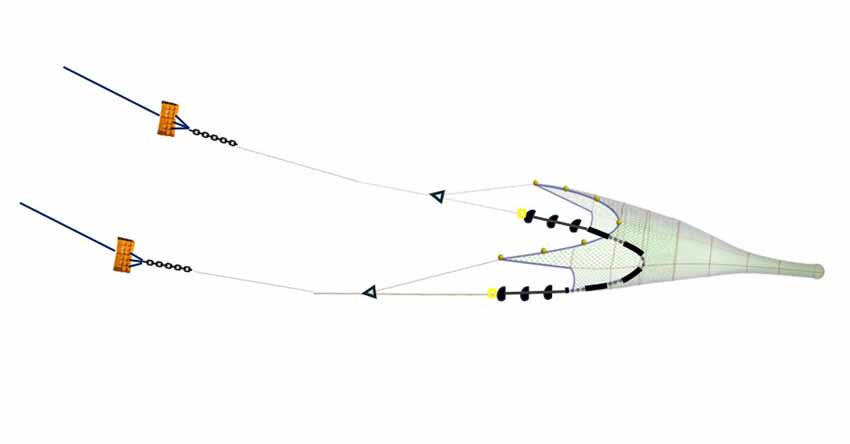Inauguration of KAINDAR prototype: Basque Country’s first smart grid port
Últimas noticias
International Day of Older Persons: Science to Promote Healthy Ageing
Planting the Seeds of Change: Educating Kids Against Food Waste
The Role of Data, Algorithms, and AI in Alternative Protein Innovation
- A consortium from Gipuzkoa has evaluated an innovative charging and power generation infrastructure that combines renewable energy sources and new connectivity technologies in real-world conditions.
- The prototype, which is the size of a shipping container and is located in front of AZTI Technology Centre in the Port of Pasaia, allows the bi-directional use of excess energy in electric boats that are moored and connected to the charging network.
On 6th November the prototype of KAINDAR, a milestone in electric marine mobility and sustainability, was inaugurated in the Port of Pasaia, Euskadi. KAINDAR, funded by Gipuzkoa Regional Council as part of the Smart Mobility Industry of the Smart and Sustainable Mobility Strategy managed by MUBIL Fundazioa, was developed by the Oarsoaldea Development Agency, AZTI Technology Centre, the SMEs Elkor Servicios Eléctricos Integrales and Oregur, and the Blas de Lezo Vocational Training Centre in Pasaia.
Índice de contenidos
Dock decarbonisation, port electrification by 2030
In line with European Union regulations to decarbonise ports, Spain has also committed to the challenge of electrifying all of the country’s ports by 2030.
To achieve this, it will be necessary to promote smart grids, i.e. bi-directional grids capable of transmitting electricity in both directions. This type of network is seen as a service that all ports should have in the near future in order to supply electrified vessels (whether recreational, small fishing, transhipment, port support vessels, etc.) in an environmentally sustainable way, thus helping to reduce the contribution of greenhouse gases. Smart grid infrastructures will allow them to charge their batteries or to discharge their excess or demand surplus to the grid in case of potential shore-based demand peaks.
KAINDAR, new electric charging infrastructure at the Port of Pasaia
In this context, five agents from Gipuzkoa have collaborated in KAINDAR, a new initiative that aims to design, install and evaluate in real conditions a new electric energy charging infrastructure in the Port of Pasaia.
This infrastructure is powered by renewable sources such as wind and solar energy, as well as the cold ironing concept, which allows ships to connect to an electrical supply in port to recharge their electric batteries or to meet their energy needs in port while their engines are switched off, thus reducing greenhouse gas emissions and other pollutants associated with combustion (such as nitrogen oxide and sulphur oxide), as well as minimising noise (acoustic pollution).
“By combining these technologies and energy sources, an energy storage and supply infrastructure has been created. This will have a positive impact not only on the environment, but also on the citizens living close to the port,” the consortium points out.
It will also be easily transportable, allowing it to be moved to other ports for future refuelling tests and exhibitions.
Este desarrollo ha consistido en la integración de un grupo de acumuladores o baterías junto con el aporte de energías renovables como solar y eólica. Sigue un modelo energético que apuesta por lo renovable, así como por el impulso de un modelo de economía circular, dejando abierta la posibilidad de emplear materiales o componentes reciclados o de segunda vida que serán explorados durante el desarrollo del mismo sistema (e.g., estructuras de módulos de segunda mano para el contenedor, baterías second life, etc.)
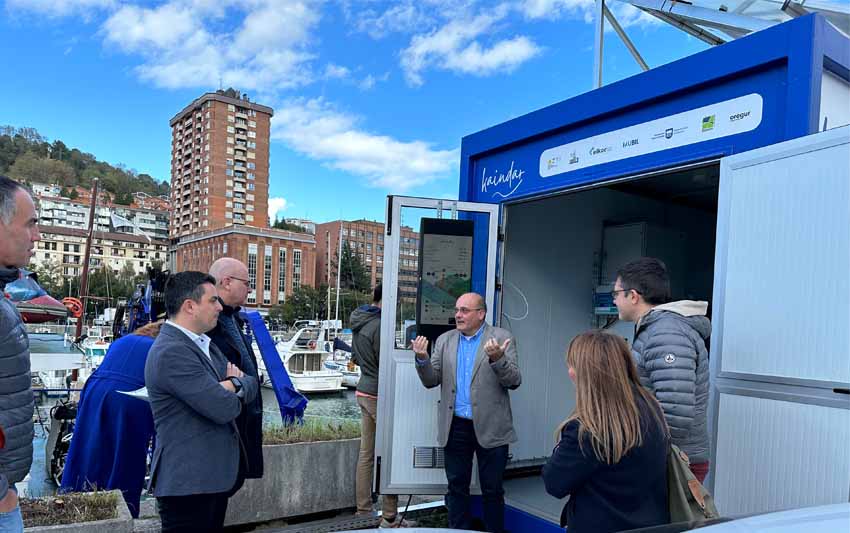
Living Lab and blue growth
KAINDAR is a pilot project within the Blue Economy Hub that has evaluated the feasibility, operation and integration of small-scale electrification and charging technologies in a Living Lab. This preliminary step is essential before large-scale deployment, both in the Port of Pasaia and elsewhere. This project is a commitment to the sustainability of the seas and oceans, in line with the Blue Growth strategy and the European Union’s Fit for 55 objectives, as well as the Oarsoaldea 2025 Strategic Plan, which aims to boost the region’s marine-based economy. The KAINDAR project will provide a scalable and qualitative technological boost, in synergy with the regional strategy of Oarsoaldea as an innovative hub and with the aim of developing sectors with high potential for sustainable employment and growth.
At the heart of KAINDAR is the electric hybrid vessel Ortze, which belongs to the Blas de Lezo Vocational Training Centre and was developed in the Basque Country. Ortze is a key element for the project’s research and experimentation, as well as for the generation and transfer of knowledge in the field of maritime electrification.
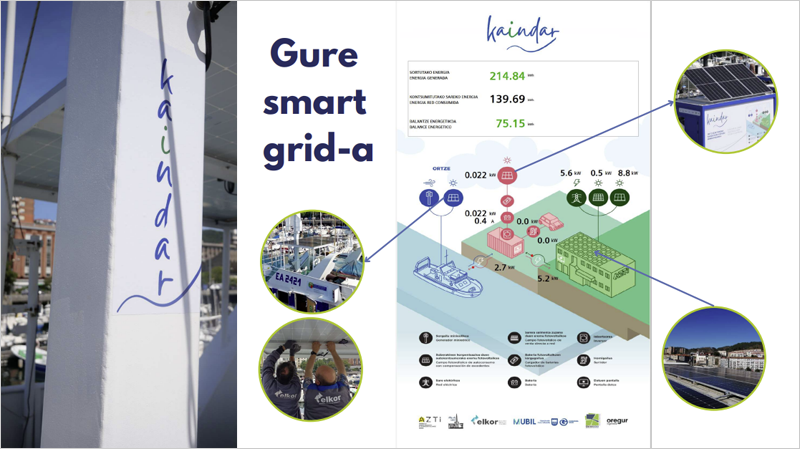
The team
The following organisations have been members of the task force:
- AZTI, a science and technology centre located in the port of Pasaia and specialising in the marine environment and food, has played an essential role in the project, providing knowledge, equipment and components, photovoltaic energy, infrastructure design, contextualisation with European policies and technology dissemination.
- The Blas de Lezo Vocational Training Centre, located in the port of Pasaia, has contributed its in-depth knowledge of the operation of the Ortze, including the generation of wind energy and the correct connection. Installation of a mini wind turbine and photovoltaic panels for the Ortze’s alternating current network.
- Oarsoaldea, the development agency of the local councils of the Oarsoaldea district, has worked on the dissemination, networking of the district’s business ecosystem, marketing and alignment of strategies for the economic and social development of the district.
- Elkor– Integral Electrical Services, a company specialising in electrical engineering, has been commissioned to install and integrate the electrical systems for the inner container and the electrical connections between land and sea.
- Oregur Ingeniería, an expert in smart charging technologies and infrastructure in port areas, industrial estates and depots, has coordinated the entire KAINDAR project.
- Mubil brings together the efforts of public and private actors promoting smart and sustainable mobility initiatives in the Basque Country, with the aim of making Gipuzkoa and the Basque Country a relevant player in the field of smart and sustainable mobility.
This multidisciplinary team has worked closely together, with the support of the Pasaia Port Authority, to make consensual decisions. The main objective was to develop a prototype that is scalable, with the challenge of integrating components and effectively managing the energy flow. This project focuses on sustainability and reducing emissions in the port (cold ironing). Its approach is based on intelligent energy management, using renewable energy sources and storage systems.
KAINDAR represents a major step forward in the electrification of ports and the promotion of electric mobility in the Basque Country. The inauguration of the prototype on 6 November is an important milestone in the history of maritime sustainability and technological innovation in the region.

